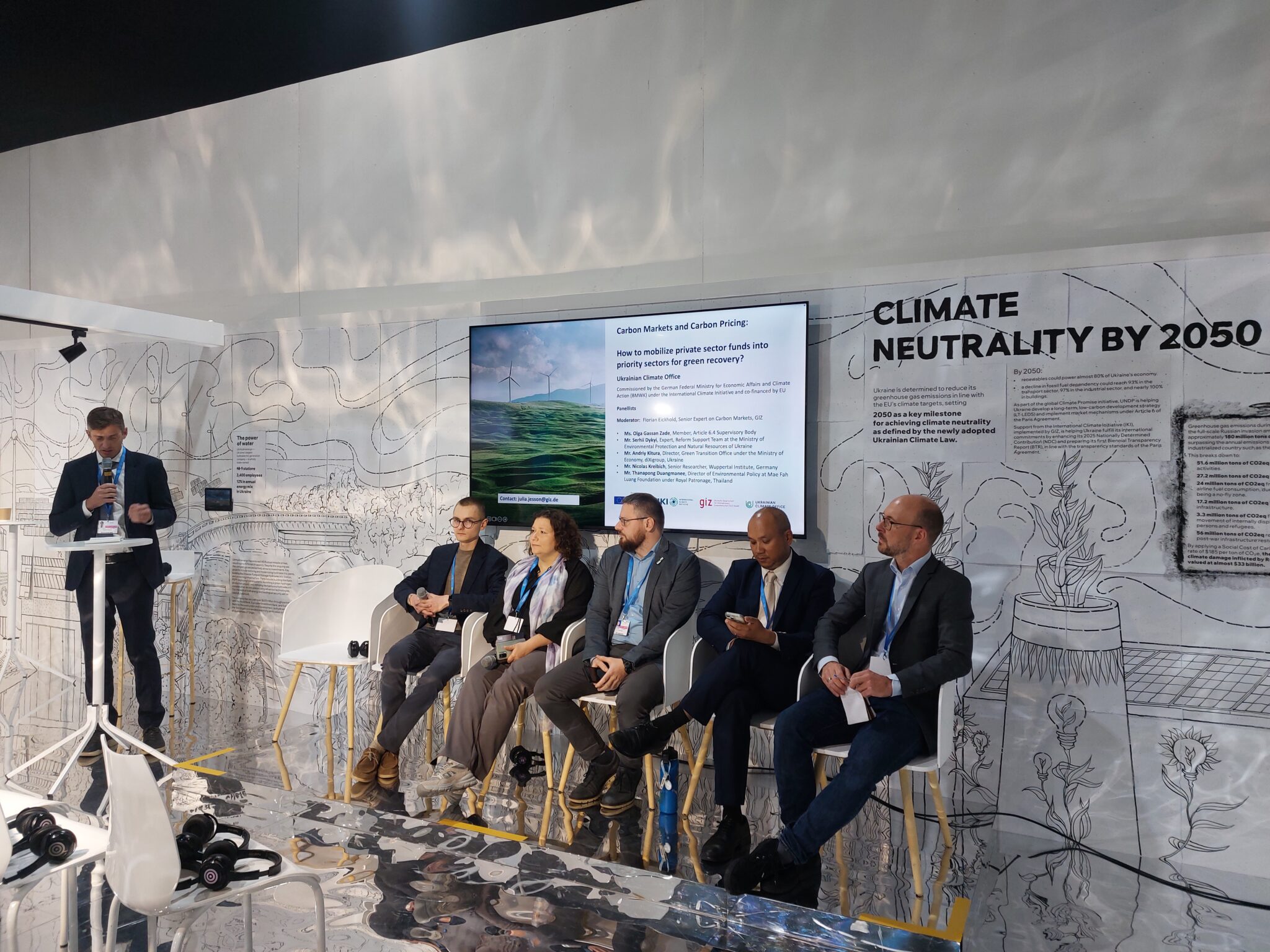Highlights from the side-event at COP29 “Carbon Markets and Carbon Pricing: How to mobilize private sector funds into priority sectors for green recovery?”

During the COP29 side event organized by the Capacity for Climate Action (C4CA) / Ukrainian Climate Office project, experts discussed the prospects of using instruments such as the carbon crediting mechanisms under the Article 6 of the Paris Agreement and opportunities for attracting investments to enhance energy security and achieve climate goals.
Ukraine is actively working to introduce market-based mechanisms for decarbonization and green recovery amidst the significant destruction caused by the war. Efforts are focused on establishing an emission trading scheme (ETS) and adopting international MRV standards to ensure effective monitoring, reporting, and verification. During the COP29 side event organized by the Capacity for Climate Action (C4CA) / Ukrainian Climate Office project, experts discussed the prospects of using instruments such as the carbon crediting mechanisms under the Article 6 of the Paris Agreement and opportunities for attracting investments to enhance energy security and achieve climate goals.
In his presentation, Mr. Thanapong Duangmanee, Director of Environmental Policy at Mae Fah Luang Foundation under Royal Patronage (Thailand), discussed Thailand’s approach to carbon crediting. Mr. Duangmanee also mentioned the upcoming climate change law that will introduce an ETS, where a significant portion of the allowances will potentially be covered by existing credits.
Government representatives and practitioners shared their experiences and expectations on how government policies in Ukraine will help attract private sector investment for projects that reduce greenhouse gas emissions, support sustainable development, and meet national goals, such as Ukraine’s “green recovery” initiative.
Olga Gassan Zade, a member of the Article 6.4 supervisory body, underlined a great interest in the experience of colleagues from Thailand and highlighted Ukraine’s achievements on the path to climate neutrality. The speaker noted that Ukraine is developing its own emissions trading scheme (ETS) with the aim of joining the EU-ETS after gaining EU membership. The country’s significant reconstruction and emissions management needs require a detailed legal framework and methodology.
Mr. Nicolas Kreibich, Senior Researcher at the Wuppertal Institute, Germany, shared his vision of a voluntary carbon market, noting the need for capacity building in many countries to better understand and utilize carbon credits by different actors, including corporations. He presented the climate contribution model, an alternative that allows corporations to support climate action outside their value chains without claiming carbon neutrality, which is increasingly difficult in Europe.
There is an urgent need for a green recovery of Ukraine, which is complicated by the increases in the cost of recovery efforts due to the significant damage caused by Russian aggression. Says Sergiy Dykyi, an expert of the Reform Support Team at the Ministry of Environmental Protection and Natural Resources of Ukraine. He emphasized that both the ETS and Article 6 are still being developed, and their integration and application require broader discussion and decision-making.
Summing up, Mr. Andriy Kitura, Green Transition Office at the Ministry of Economy, diXigroup, Ukraine, gave an overview of the path Ukraine has taken and current strategies to ensure market readiness and carbon market development, drawing on his experience over the past 15 years.
Despite the challenges, Ukraine has the potential to implement effective solutions, backed by prepared projects in various sectors, international support and innovative financial approaches.
The event was organized by the Ukrainian Climate Office under the Capacities for Climate Action (C4CA) project implemented by GIZ on behalf of the German Federal Ministry for Economic Affairs and Climate Action (BMWK) within the framework of the International Climate Initiative (IKI) and co-financed by the European Union.